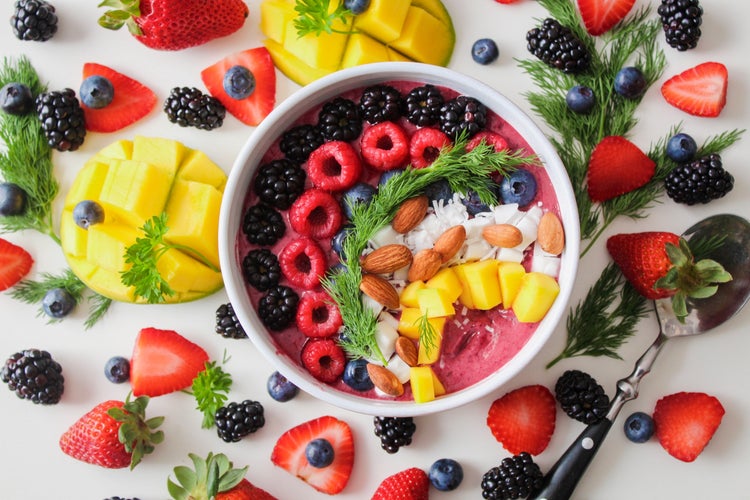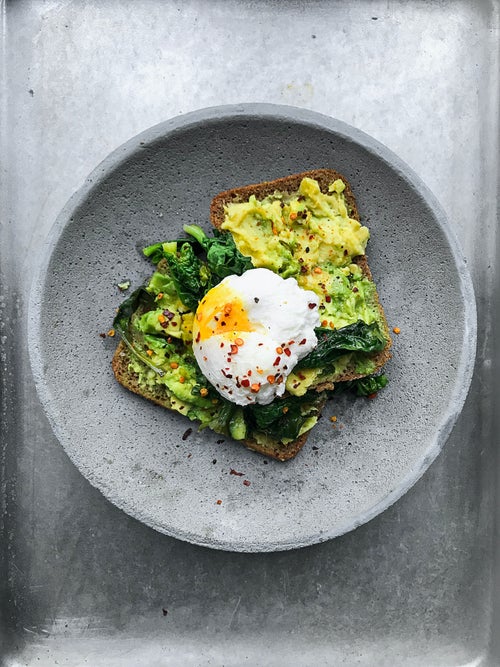Making changes to our dietary habits can lead to adjustments to the structure of our brain chemically and physiologically, leading to altered behaviour. By following as many suggestions as you can from below, not only will you improve your mood but feel the impressive health benefits. Use the glossary at the end to help with any complicated terms and feel inspired by the affirmations spread throughout this article!
I feel amazing when I am nourished, I deserve to feel this way.
If you need non-negotiable proof that fad low carb diets don’t work, this is for you. The amino acid, tryptophan, increases the production of serotonin in the brain, which in turn boosts your mood. As it is not produced in the body, it is essential that we nourish ourselves with tryptophan-rich foods, found mostly in proteins and complex carbs. Combining this with vitamin B and D, which also help increase serotonin production in the brain, will help reduce fatigue and increase your natural desire to exercise.
Which foods? Whole grains, fruits, vegetables, fish.
What I ate yesterday, does not dictate what i eat today
When I used to hear my dad repeat to me daily in school that “breakfast is the most important meal of the day”, it would wind me up so much. However, I never truly realised how much effect having a balanced breakfast could impact my day. Studies show that eating breakfasts regularly improve memory, increase energy levels and improve levels of calmness.
Which foods? Rolled oats, whole grain bread, berries, yoghurt.
I forgive my past self for dieting and I choose to be free moving forward
Eating well plays a massive part in self-care, so making sure we include a range of nutritious staples is vital. Omega-3s prevent and help with depression as they affect neurotransmitters in the brain. Although there is some doubt as to how much effect omega-3 fatty acids have in the fight against depression, there is no doubt that filling up on these foods will have some added health benefits.
Which foods? Fish, walnuts, eggs, yoghurt, flaxseeds, cheese, avocado.
In order to get comfortable with food again, I must first get a little uncomfortable.
The Mediterranean diet has been proven to reduce anxiety and improve your mood, so I’d aim to include at least a couple Mediterranean inspired dishes in your meal plan per week. Making time to eat and enjoy a new dish can make incorporating new meals easy whilst eating highly nutritional foods.
Which foods? Fish, nuts, legumes, cereals, fruits, vegetables.
I respect my body for all it does for me, I choose to treat it that way as well.
Interestingly, the food-mood relationship, although influenced by nutritional content, can be impacted by preexisting associations of food. For example, chocolate is seen by many as a pleasure or reward but has no noticeable nutritional impact on the brain. Foods and meals have different significance to us as individuals which influences how we feel. By creating positive and mindful relationships with foods, we can adjust how we fuel our bodies and approach mealtimes in a healthier way.
Glossary:
Tryptophan: a natural amino acid that helps fight against insomnia, anxiety, stress, depression and other behavioural disorders.
Serotonin: a key hormone in the body that stabilizes our moods and feelings that affects our entire body.
Omega-3: nutrient we get from food that helps maintain a healthy body.






